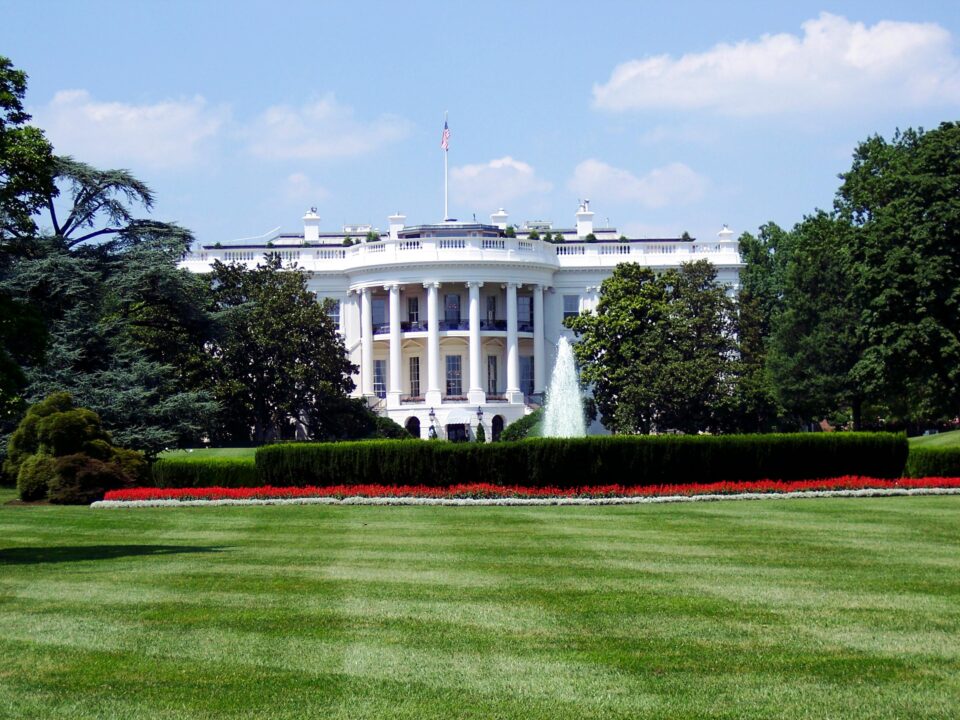In September, I visited China for the first time in over four years to introduce my son to his 94-year-old great-grandmother in Beijing. The city of my birth is lovely in autumn, and we spent our mornings walking in the beautiful new park near her apartment complex. Every day, I noticed that the park was full of retiree groups, taking elaborate group selfies, picnicking, singing a cappella, and just enjoying life. It was a joyful scene to behold.
My mother, who tagged along one day, turned to me and said, “These retirees are the happiest people in China, as long as they focus on having fun.”
Her words were loaded. The Chinese government describes itself as a democracy, but it is commonly understood to be an authoritarian one-party state. Chinese citizens do not have the right to vote, and political speech is heavily censored and frequently punished. For these retirees to continue collecting their pension and enjoying the city’s many amenities, they must take care to appear thoroughly apolitical, and—when the occasion calls for it—to express nothing less than wholehearted support for China’s ruling party. The civic duty prescribed for them is to not cause trouble for the Party, who would in turn not cause trouble for them.
The thought of going about my normal life unbothered, made conditional to cowed subservience dressed up as blithe political apathy made me feel ill at ease. To what degree were some of the Chinese aunties’ smiles a performance? I will never know. But after multiple squashed political protests in recent years, I imagine they operate carefully within what they understand to be acceptable behavioral parameters.
It would be a cliché to compare the great American democracy to China’s “undemocracy,” and I won’t do it. The fact of the matter is, I am deeply worried about how rigged the American democratic system is by racist right-wing forces as we count down to Election Day. However, as a naturalized American citizen, I can still vote, and I, along with millions of other eligible voters, can come together as a sort of “civics Voltron” to steer the figurative ship towards less treacherous waters. But this does require a mindset of prioritizing the common good, something many Americans perceive to represent the death of individual happiness, or even individuality itself.
I can understand why many view the candidates they cast their vote for to be a node of their identity, a representation of their personal values and morals. We live in an age of carefully curated identities shaped by ethical consumerism, where people aspire to buy from brands and listen to artists whose politics align with their own. This is not only about supporting the right stances but also protecting one’s reputation, making sure goodwill and cash are only bestowed upon the truly deserving. On the surface, this translates well to voting, with everyone casting a ballot for their perfect candidate, whose record and platform are devoid of contradictions and ugliness.
Some of my friends and acquaintances write on social media that Kamala Harris is a bloodthirsty warmonger, and that until her stance on Gaza changes, they refuse to vote for her. I am more than a little troubled by several aspects of her platform (her promise to build the “most lethal fighting force in the world” for example), but I despair that this particular warmonger will lose the election to Donald Trump, whose housing policy consists of “mass deportations,” and whose MAGA lackeys are currently putting various voter suppression measures in place in key swing states with the clear intent to steal the election.
I can’t help but wonder if many Americans who full-throatedly profess to hate Trump but also dislike Harris enough not to vote have forgotten that beyond being part of their personal brand, voting is also their civic responsibility, to wield their power, however small on their own, in deciding how the future plays out? Is their reputation of moral purity so precious that it cannot be sacrificed to protect this country—this world against the scourge of Trump?
There’s a famous line of ancient Chinese poetry “先天下之忧而忧,后天下之乐而乐” that urges the reader to concern oneself with one’s country’s problems before partaking in its pleasures. According to my friend Brendan O’Kane, a Chinese-English translator and scholar of ancient Chinese literature, the “concern” in question is probably more a call to “worry” than to “act.”
Faced with so much uncertainty for what the future holds, as Americans, we must do more than worry. We must actively prevent Trump from attaining (more) power, even if we have to hold our noses at the voting booth this November.
What even are the pleasures withheld for voting Harris? Unlike the citizens in the land of my birth, rejecting authoritarianism would not threaten to upend your life, but the stakes for failing to try may do just that.
The way I see it, withholding your vote with the intention of preventing Harris from winning, in an election with such high stakes, is a radically selfish act of elevating individual will above the well-being of millions. The highest form of this kind of reckless individualism is authoritarianism itself.
This article first appeared on The Emancipator and is republished here under a Creative Commons license.
Photo by Aaron Kittredge: https://www.pexels.com/photo/white-house-129112/

